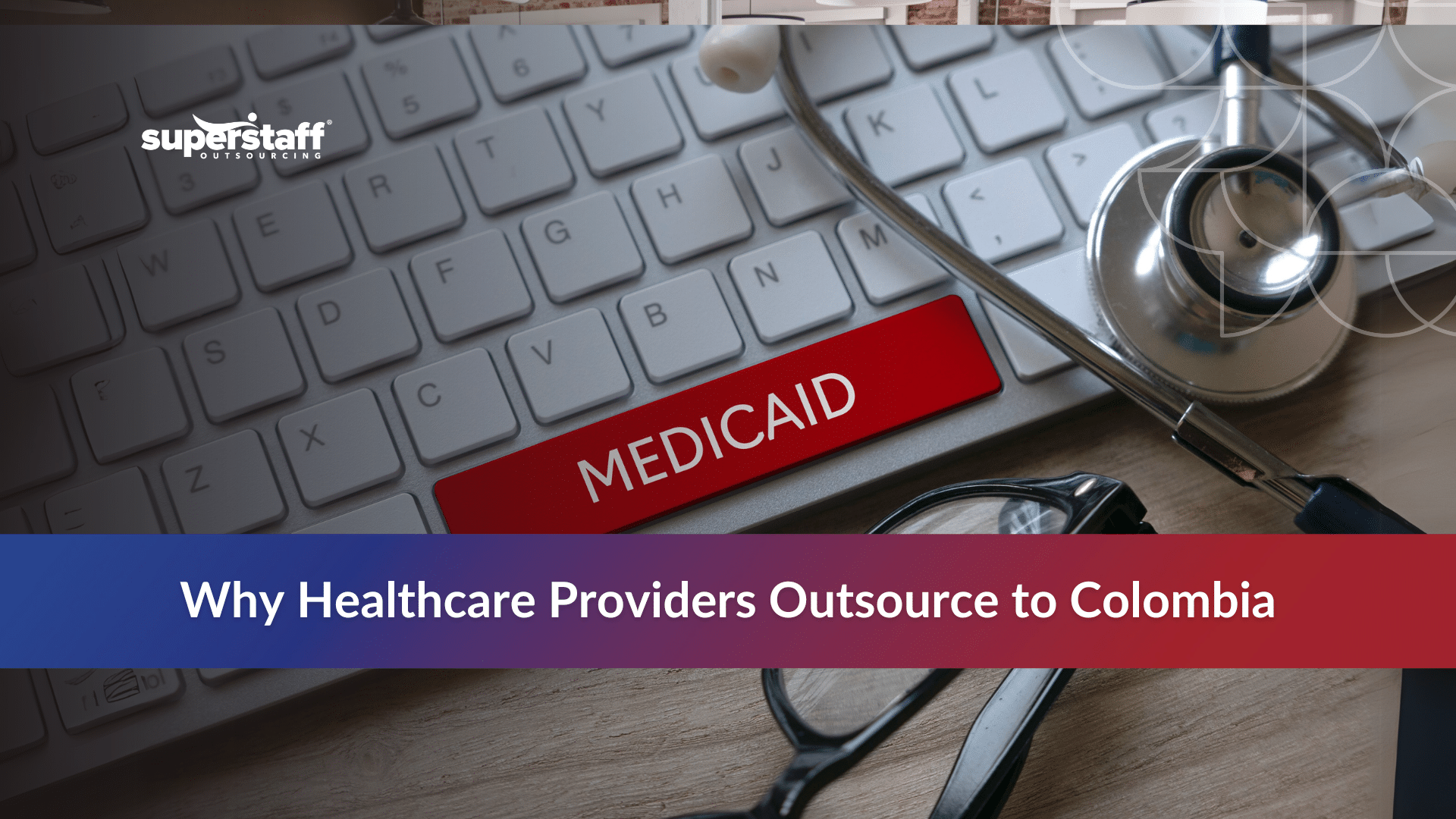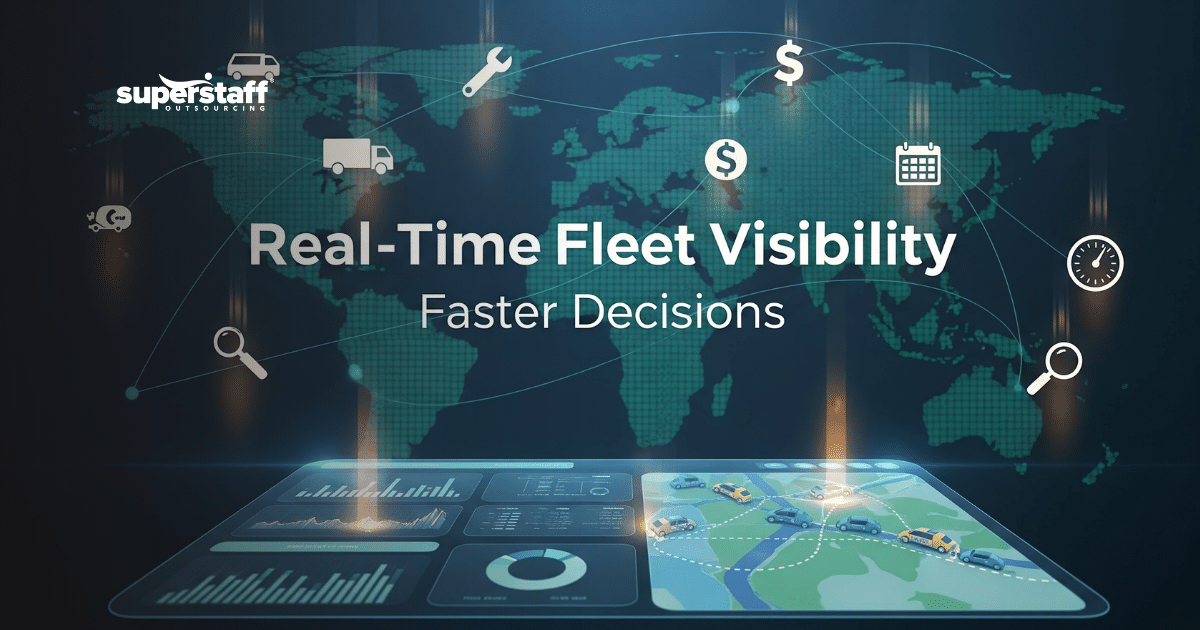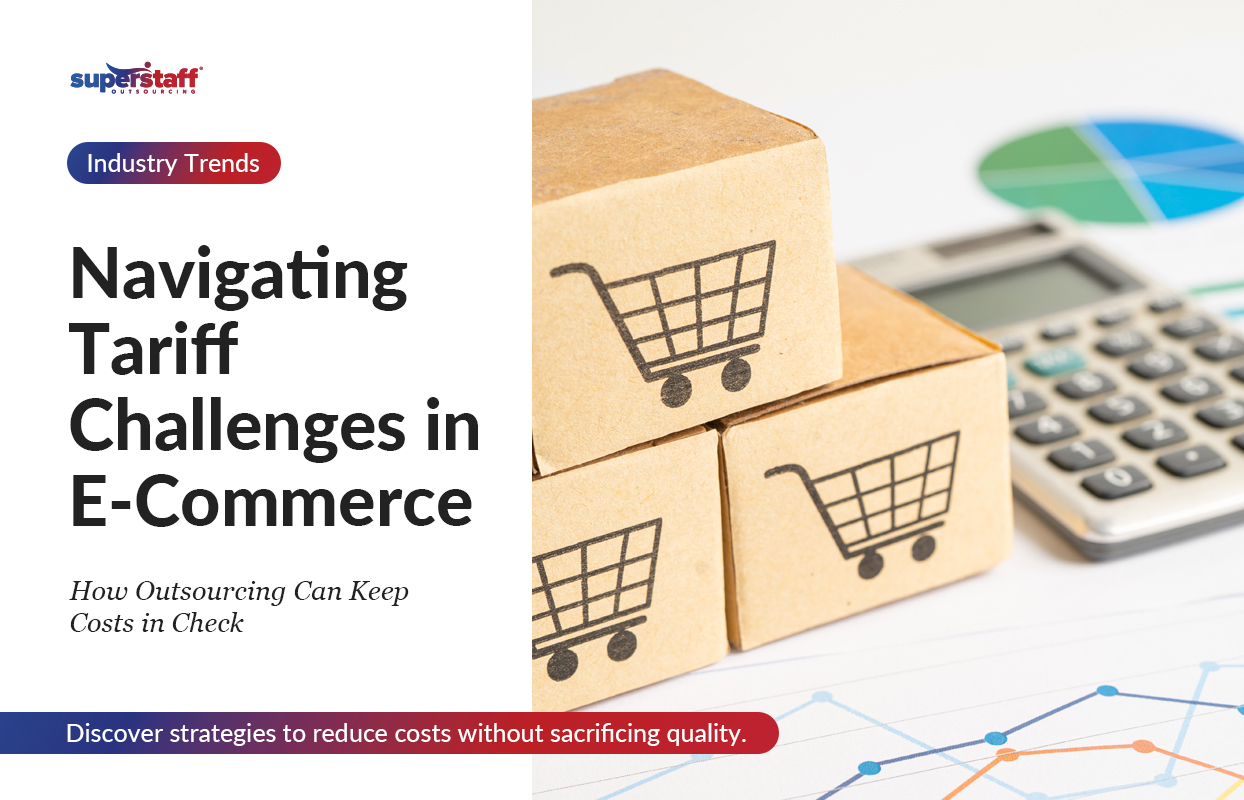
Imagine facing a sudden 20% increase in your supply costs overnight. That’s the reality U.S. e-commerce and retail businesses could soon face.
Under the new administration, industry experts foresee increased tariffs on foreign supplies and goods. This proposed legislation could disrupt the retail landscape, pushing operational costs sky-high and squeezing margins.
In this article, we explore the potential impact of President-elect Donald Trump’s tariffs and then delve into how e-commerce outsourcing can serve as a strategic shield for online retail businesses.
Familiarizing yourself with the latest regulatory developments and exploring strategic solutions to address them can help your business stay competitive by mitigating rising costs and optimizing operations.
Understanding the Impact of Potential Trump Tariffs on E-Commerce
In November 2024, U.S. President-elect Donald Trump announced his proposal for massive tariff hikes, which would take effect on January 20th. This executive order would result in a 25% tariff on Canadian and Mexican goods, a 60% tariff on products from China, and a 20% tariff on all other countries. Let’s examine what this could mean for the retail and e-commerce sectors.
What Is a Tariff?
First, let’s give a brief overview of tariffs. These are government-imposed taxes that regulate the import and export of goods. Through tariffs, governments can regulate foreign trade, safeguard domestic industries, and encourage citizens to prioritize local products and goods. While tariffs could benefit local businesses, they could also hinder companies that rely on foreign supplies and goods to operate efficiently.
How Do Tariffs Work?
Tariffs work by adding taxes to foreign goods and products, acting as a protectionist tool for domestic businesses. However, the main problem is that many of today’s local companies rely on supplies, raw ingredients, parts, and finished products sourced and assembled through overseas markets. As such, tariffs create unwanted side effects, such as rising operational costs for businesses and higher consumer prices.
What Potential Impact Could Tariffs Have on Online Businesses?
Although President-elect Trump’s proposed tariffs could affect all sectors, they could particularly impact the retail and e-commerce industries. The massive tariff hike could lead to higher prices for imported goods, affecting retailers heavily dependent on foreign products. It could disrupt e-commerce operations by increasing the costs of raw materials, inventory, and shipping.
Potential Challenges Faced by Retailers Following the Tariff Hike
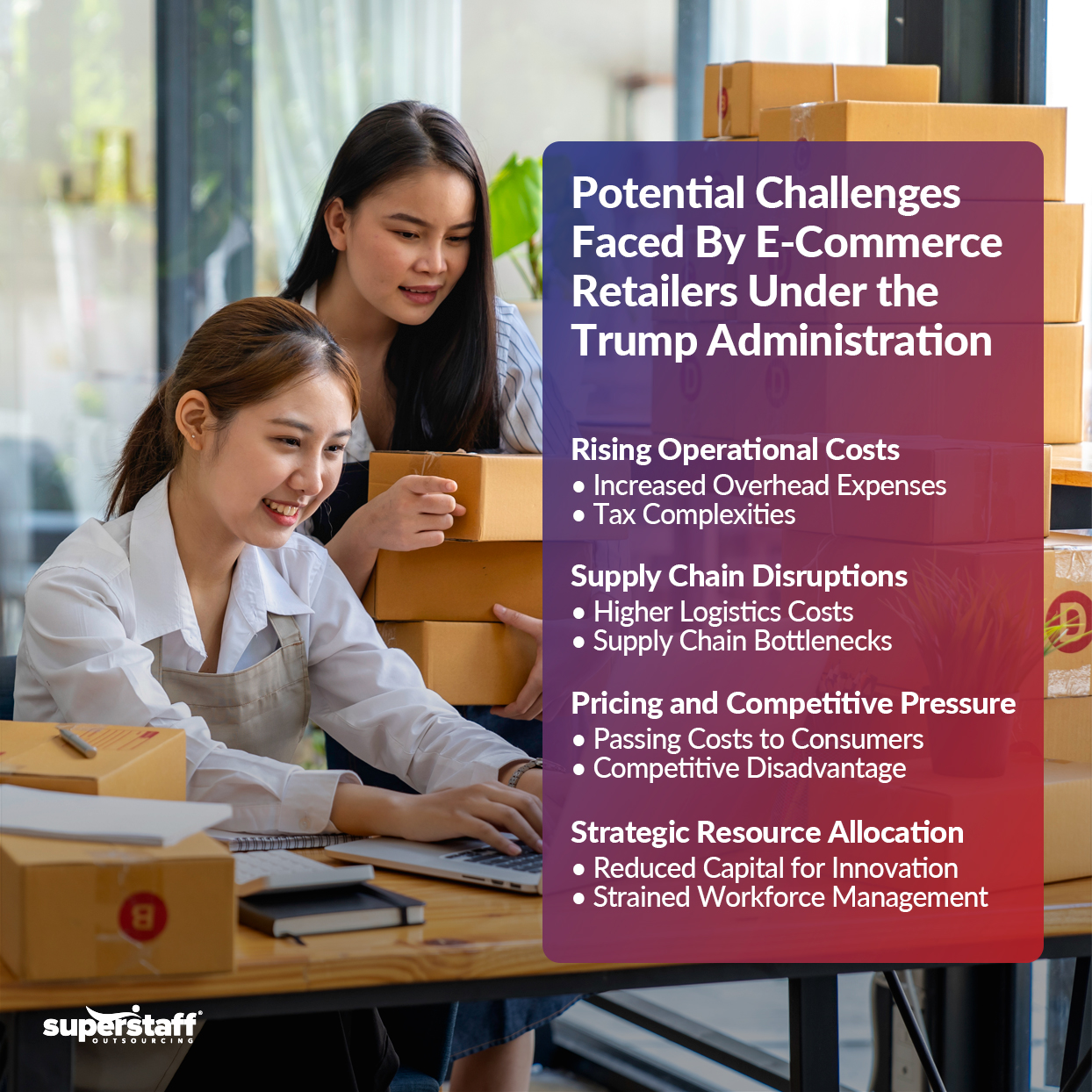
Having discussed the potential impact of the tariff hike on online businesses, let’s break down the specific challenges e-commerce companies may face in 2025 and beyond. With the new administration’s widespread regulatory changes, companies can expect higher operational costs, continued supply chain disruptions, competitive pressure from rising consumer prices, and trouble with strategic resource allocation.
Rising Operational Costs
According to industry experts, the Trump administration’s newly proposed tariff hikes will be one of the most significant tax increases in over ten years. With this executive order, American citizens may have to pay $80 billion worth of additional taxes. As such, retailers may struggle to find the cost-effective supplies, raw materials, and finished goods needed to meet rising consumer demand while maintaining profitability.
Retailers will likely experience increased overhead, which could reduce profit margins unless adjustments are made. In the online commerce industry, discount retailers and footwear companies are particularly vulnerable to higher overall operational costs, potentially affecting their bottom line.
For instance, the Footwear Distributors and Retailers of America (FDRA) estimates that 99% of shoes and other footwear sold in the United States are imported from different countries. To make matters worse, 56% of imported footwear comes from China, which will face the steepest tariff hike under the Trump administration. These numbers illustrate a growing operational problem for many online retailers, creating a need for stronger cost-saving measures.
Supply Chain Disruptions
The dramatic increases in tariffs, which could reach 60% for Chinese imports and 20% for other trade partners, have the potential to reshape the global supply chain environment. This newly proposed shift in U.S. trade policy may exacerbate existing supply chain and logistics challenges, making it harder for e-commerce companies to maintain their productivity and efficiency.
Since many U.S. businesses, particularly in the retail sector, have invested in nearshoring and friendshoring strategies in recent years, many may have to refine or completely alter their operational models. The tariff hikes could trigger widespread supply chain disruptions, forcing companies to seek alternative part suppliers or face delays and increased logistics costs.
Some industry experts also worry that the increased tariffs could shut down smaller businesses. They can no longer save costs by sourcing raw materials and goods from other countries. Higher operating costs could impact consumer prices, reducing competitiveness and lowering profitability and growth.
Pricing and Competitive Pressure
If the new administration follows through on its proposal to impose 25% tariffs on all imported goods, businesses will have little choice but to pass down added costs to consumers. This could dramatically increase prices for everything from food and clothing to consumer electronics and automobiles, driving away cost-sensitive customers and reducing sales volume.
Rising Grocery Prices
According to a pre-election survey, 7 in 10 voters expressed concern about rising food prices. Many were also worried about the economy and inflationary pressures. However, the Produce Distributors Association fears that the tariffs will continue raising grocery prices, hurting U.S. consumers and farmers by making fruits and vegetables more expensive. The tariffs may also cause other countries to retaliate, adding additional taxes to American exports and goods.
In addition to increasing the cost of grocery items, large retailers like Walmart have warned that the tariff hikes could force them to raise prices for various goods, such as consumer electronics, clothing and apparel, and home appliances.
Higher Costs for Consumer Electronics
The Consumer Technology Association estimates that the proposed tariffs would reduce U.S. families’ spending power by $90 billion, particularly for products such as TVs, laptops, smartphones, video game consoles, headphones, and more. Since many electronic devices are manufactured in offshore locations like China, laptops and tables could see price hikes as high as 45%. The same is true for smartphones and gaming consoles.
Here’s the problem for domestic retail and e-commerce brands: By raising prices, their business may struggle to compete with global companies unaffected by the increased tariffs. This puts them at a massive competitive disadvantage when catering to customers worldwide.
Strategic Resource Allocation
Another struggle that many U.S. e-commerce companies may also face amid the tariff hikes is resource allocation. Since the proposed tariffs will drive costs up, brands must be more strategic about budgeting and where to allocate funding and resources. This could lead to two significant problems: reduced capital for innovation and strained workforce management.
For the former, higher operational costs could divert funds away from technology investments, business expansion, and other growth opportunities. Since e-commerce companies may be focused on maintaining profitability amid inflationary pressures, they will be less able to prioritize innovative programs and initiatives, bringing stagnation and even a potential financial slump.
Meanwhile, cost pressures could also force online brands to make staffing cuts and other cost-cutting measures that may reduce service quality, operational efficiency, and productivity. These changes could impact the customer experience, driving down buyer satisfaction and loyalty.
E-Commerce Outsourcing as a Strategic Solution to Industry Challenges
Now that we’ve gone into detail on the potential challenges facing e-commerce businesses under the new administration, let’s explore a potential strategic solution: e-commerce outsourcing.
Working with an e-commerce outsourcing partner can empower online brands to increase their agility and flexibility, navigate regulatory changes, and keep costs under control. Strategic outsourcing offers significant cost savings, allowing e-commerce businesses to divert resources to their core revenue-generating activities while maintaining operational efficiency.
Here’s a breakdown of the particular solutions you can outsource to an e-commerce back-office service provider in the Philippines:
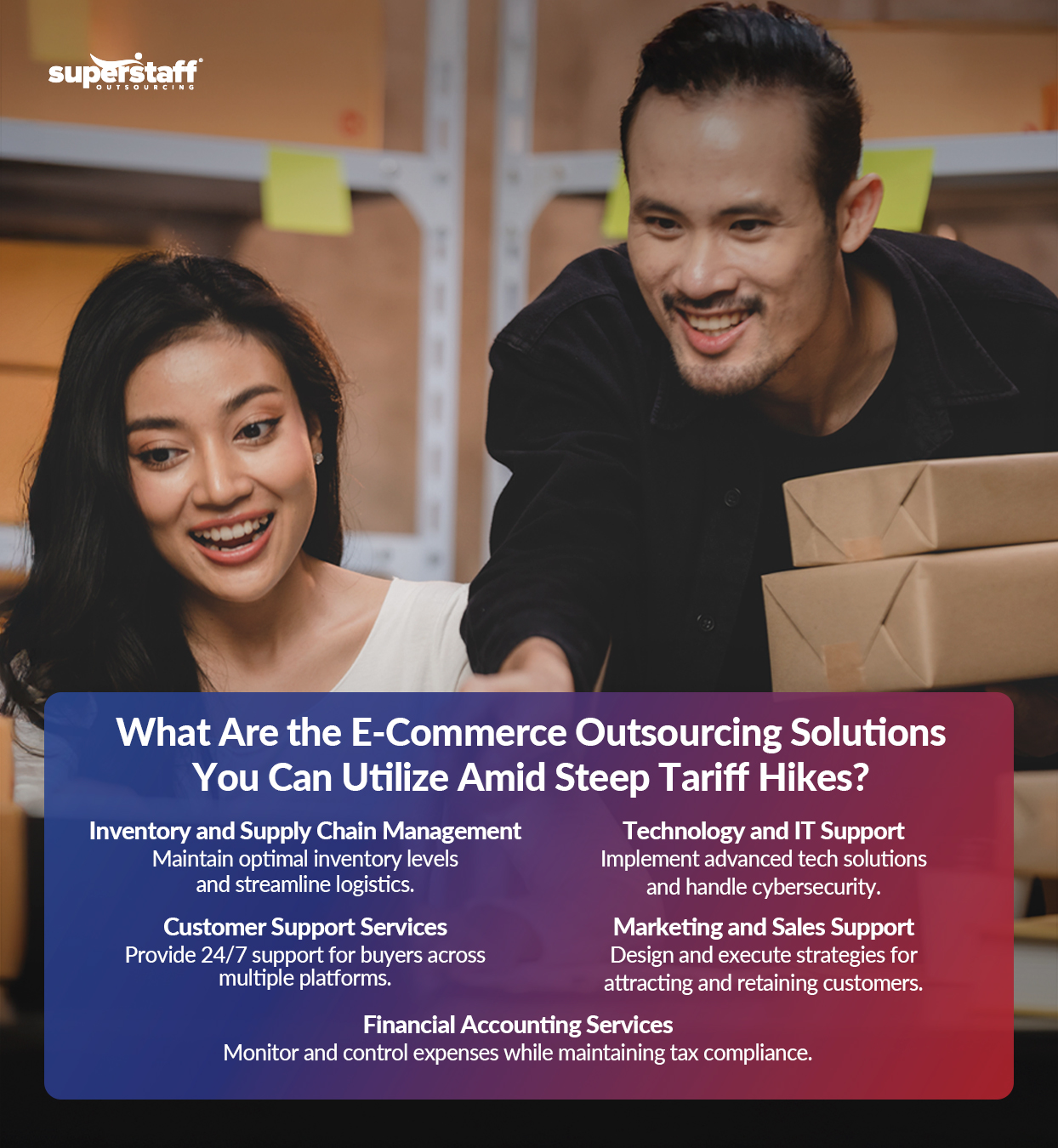
Inventory Management and Supply Chain Optimization
As mentioned in previous sections, e-commerce businesses may face increased supply chain disruptions due to the proposed tariff hikes. To thrive in this environment, they’ll need to be proactive in streamlining logistical processes and ensuring seamless collaboration between each stage of the supply chain. This is where strategic outsourcing can come in handy.
By working with a BPO provider, online brands can connect with inventory management and supply chain specialists. These offshore professionals can implement advanced inventory systems to ensure enough supply to meet demand, thus reducing waste and preventing overstocking.
Additionally, having an outsourcing partner can empower e-commerce businesses with enhanced supply chain resilience. They can help source alternative suppliers and streamline logistics to mitigate tariff impacts, creating a more optimized and cost-effective supply chain.
Customer Support Services
Through customer support outsourcing in the Philippines, e-commerce companies can keep costs in check while investing in an enhanced buyer experience. This is particularly critical because increased tariffs will drive consumer prices up and may lead to lower customer satisfaction. Outsourcing customer service can help your online brand proactively nurture buyer relationships, address concerns, and resolve problems.
Outsourcing is more scalable than expanding in-house customer service teams, enabling brands to handle rising demand without increasing overhead costs. Since many online brands cater to international markets, BPO firms also offer multilingual support. This will allow businesses to improve communication with global customers, thus cultivating deeper and more positive buyer relationships.
Financial and Accounting Services
As e-commerce brands navigate tariff challenges, they will need dedicated accounting specialists to help them track costs, maintain tax compliance, and ensure company health and profitability. Financial service outsourcing allows companies to monitor and control expenses more effectively. These outsourced accounting and bookkeeping experts stay updated on the latest regulations and legislation to ensure proper tax preparation and documentation.
In addition to cost management, outsourcing accountants can help e-commerce companies with forecasting and budgeting. Leveraging advanced technology, these offshore financial experts provide data-driven insights to navigate fluctuating costs and maintain profitability.
Technology and IT Support
Investing in digital transformation is a top priority for many e-commerce companies, especially since customers contact them through various online channels. However, accelerating technology adoption and innovation demands a more robust information technology (IT) infrastructure and a qualified tech workforce. Thankfully, BPO service providers can connect brands with IT and technical support specialists who meet their needs.
Having a dedicated IT team can boost overall operational efficiency. These offshore professionals can implement automation and AI solutions to reduce manual processes and lower costs. At the same time, outsourcing partners can offer enhanced cybersecurity and data protection protocols, protecting your customers’ sensitive information and reducing the risk of costly breaches.
Marketing and Sales Support
Another BPO solution e-commerce companies could benefit from outsourcing is marketing and sales support. As operational costs rise, effective marketing and sales processes can be crucial for raising brand awareness, attracting new customers, and keeping the business of existing ones, all while maintaining a tight budget.
Outsourced marketing teams can launch cost-efficient campaigns to maintain sales momentum despite price increases. They use data-driven insights to create targeted advertisements that address customer pain points and highlight a brand’s competitive advantages.
Meanwhile, sales support experts focus on developing and implementing innovative customer retention strategies. With the right loyalty programs, e-commerce brands can more easily retain customers even when prices are higher, ensuring sustained revenue streams.
E-Commerce Customer Service Outsourcing in the Philippines: Why Choose This BPO Destination
Knowing which outsourcing solutions to utilize is vital, but location is another critical factor you cannot overlook when deciding on a BPO partner.
Known as the “World’s BPO Capital,” the Philippines is a popular outsourcing destination for many U.S. companies—and for good reason. By providing quality services at cost-effective rates, offshore BPOs in the Philippines have helped many brands strengthen their operations while lowering expenses.
As you navigate complex regulatory challenges like tariff hikes, working with a Philippine outsourcing company can help improve your flexibility and scalability, giving you a competitive edge in the shifting e-commerce landscape. Here’s why:
Proven Expertise in E-Commerce Solutions
Many online brands trust BPO partners in the Philippines because of the country’s proven expertise in e-commerce solutions. For years, the Southeast Asian nation has catered to various multinational e-commerce companies, providing a wide range of comprehensive services. With the PH’s track record in managing inventory, supply chains, and customer service, businesses can rest assured that their operations are in good hands.
Customized Strategies
The Philippines is home to a wealth of BPO companies that provide customizable and scalable services. With the country’s unique “Yes Po” culture, Filipino workers apply empathy, personalization, and hospitality to every customer interaction. The same is true for BPO firms. To meet unique business needs, outsourcing providers in the Philippines craft tailored solutions targeting specific industries and goals, increasing competitiveness and ensuring resilience in volatile markets.
Connect With an Experienced Philippines Customer Service Outsourcing Partner
President-elect Trump’s proposed tariffs pose significant challenges for the retail sector, but outsourcing offers a clear path to cost savings and operational resilience. Businesses can protect their bottom line by understanding the impact of tariffs and leveraging strategic e-commerce outsourcing.
SuperStaff offers end-to-end BPO solutions for e-commerce companies, from order processing and data entry to supply chain management and logistics support. We aim to help you navigate the most pressing challenges in your industry, empowering you to meet your unique business goals.
Discover how SuperStaff’s tailored services can help your brand stay competitive—contact us today!


